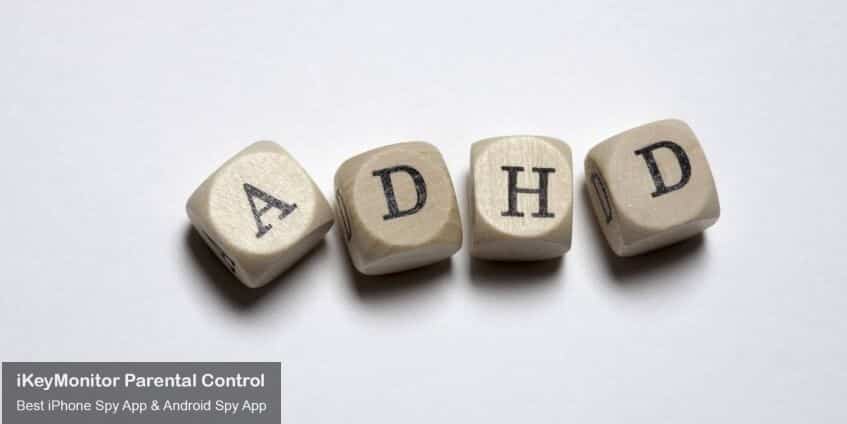ADHD in Teens: Parenting Strategies 2026
What is ADHD in teens? In the process of growing up, young adolescents also face expectations for learning and other extracurricular activities in schools as well as in families, friends, and peers. They feel pressured to meet social and academic expectations, which is the main reason for the increase in attention deficit hyperactivity disorder (ADHD) during early childhood adolescence.
What Is ADHD in Teens?
Adolescent attention deficit hyperactivity disorder (ADHD) is a mental illness that most of the adolescents develop from the age of 13. Some facts about ADHD include:
1. Affect nearly 8% to 10% of children
It affects nearly 8% to 10% of children. Although some children will get better, they can see their sequelae during puberty and adulthood.
2. Boys are more prone to ADHD
Boys are more prone to ADHD symptoms than girls. Therefore, they often adapt to the stereotypes of ADHD children who are constantly exercising and impulsive.
Major Signs of ADHD in Teens
If your child is having an impulsive attitude, hyperactive, inattentive, or aggressive, then he or she may suffer from ADHD.
1. Cannot establish relationships with others
ADHD in teens may be the reason why so many children cannot establish relationships with other children.
2. Teens with ADHD have other symptoms
In addition to some of the main symptoms, adolescents with ADHD have other symptoms, including distraction, inattention, forgetfulness, boring, boring learning, slow learning, not listening, daydreaming and confusion, always moving, not sitting still. It is difficult to sleep and work quietly, depressed, unable to control emotions, etc.
The Challenges Faced by Teenagers with ADHD
Usually, adolescents with ADHD are considered to have anxiety or behavioral or emotional problems, which is why so many teenage children are not treated. Indeed, these emotional or behavioral problems contribute to ADHD behavior, but this is not the cause of ADHD. The challenges faced by adolescents with ADHD include difficulty in maintaining relationships with others in the social circle due to impulsiveness, overactivity, and lack of concentration.
1. Social challenges
Adolescent ADHD is a major obstacle to weak social skills. Because of their irrational behavior, they have difficulty interacting with others. As a parent, you need to create an environment in which they must play with other children on the team and let them learn to compromise for the team. Help them develop social skills, such as listening to people and talking, rather than interrupting conversations.
2. Academic challenges
Children with ADHD are unable to concentrate, have poor grades, have poor participation, and are likely to be unable to complete their studies. By treating and giving them some extra attention, children can perform better.
3. Emotional challenges
Adolescents with ADHD do not like to be criticized or accused. It is important to understand teens with ADHD. Emotions play an important role in it. Children with ADHD experience emotional difficulties, and they are more likely to be depressed than normal children. They need extra support and sympathy from teachers and parents. If the early symptoms of ADHD are not resolved, they will develop more severe ADHD symptoms during puberty. If they are forgetful or disordered, then it doesn’t matter. But if they are impulsive and do bad things, then they must learn from the future.
Parenting Strategies for ADHD in Teens
It is very difficult to raise a teenager with symptoms of attention deficit hyperactivity disorder. No matter how hard you try to stay conscious, there will always be problems, but as a parent, your job is to deal with it now. Of course, parents feel uneasy because of their unreasonable behavior, but that doesn’t mean you start yelling. Here are some recommended parent strategies for ADHD in teens.
1. Keep calm
Keep calm and show your child your opinion so that he/she knows what he/she did and how it affects his/her parents. Once you have put forward your point of view, move on and don’t string together the mistakes. Don’t turn a blind eye to the positive things your child does. Be sure to thank him or her for taking the initiative.
2. Pay attention to ADHD with teenagers
If your child is diagnosed with ADHD, you will need to prepare for his/her need for parenting. You need to know what you have to do and be prepared. Learn about adolescents with ADHD, predict what will happen, and how to deal with it. Think about solutions to common problems. Always be ahead of your child by 10 steps. If things don’t have the right way, then you can accept failure because it is part of life and you can’t control everything. It is important that both parents are on the same page when they are dealing with their children. Work harmoniously to achieve the best results in the worst case.
3. Use a spy app
There are many monitoring software on the market, and you can try iKeyMonitor. It is the best parental monitoring software that allows you to understand all the activities of your child. When you have no plans or set any boundaries, things may get out of hand. Just like the parents of other normal teenagers, you should also monitor your child’s behavior. Let them go home on time, make sure they complete their homework on time, and help you with some housework. If you set boundaries and stick to it, things will get better.
Dealing with a combative and impulsive teenager may be overwhelming most of the time, but these recommended strategies for ADHD in teens can really help you, so be sure to try. With iKeyMonitor, you can understand your child’s online activities, monitor the surrounding environment, in order to develop a plan for treatment.

Tags: ADHD in teens, suffer from ADHD, the challenges faced by adolescents with ADHD, understand teens with ADHD
Category: Learning & How to, Parental Control Tips